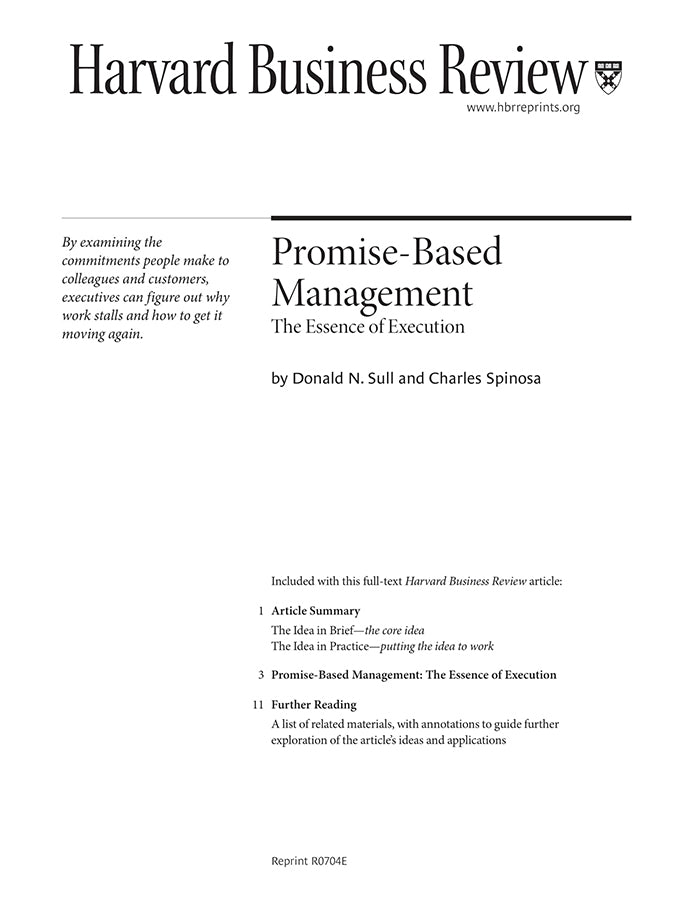Promise-Based Management: The Essence of Execution
受取状況を読み込めませんでした
This article includes a one-page preview that quickly summarizes the key ideas and provides an overview of how the concepts work in practice along with suggestions for further reading. Critical initiatives stall for a variety of reasons--employee disengagement, a lack of coordination between functions, complex organizational structures that obscure accountability, and so on. To overcome such obstacles, managers must fundamentally rethink how work gets done. Most of the challenges stem from broken or poorly crafted commitments. That's because every company is, at its heart, a dynamic network of promises made between employees and colleagues, customers, outsourcing partners, or other stakeholders. Executives can overcome many problems in the short term and foster productive, reliable workforces for the long term by practicing what the authors call "promise-based management," which involves cultivating and coordinating commitments in a systematic way. Good promises share five qualities: They are public, active, voluntary, explicit, and mission based. To develop and execute an effective promise, the "provider" and the "customer" in the deal should go through three phases of conversation. The first, achieving a meeting of minds, entails exploring the fundamental questions of coordinated effort: What do you mean? Do you understand what I mean? What should I do? What will you do? Who else should we talk to? In the next phase, making it happen, the provider executes on the promise. In the final phase, closing the loop, the customer publicly declares that the provider has either delivered the goods or failed to do so. Leaders must weave and manage their webs of promises with great care--encouraging iterative conversation and making sure commitments are fulfilled reliably. If they do, they can enhance coordination and cooperation among colleagues, build the organizational agility required to seize new business opportunities, and tap employees' entrepreneurial energies.
【書誌情報】
ページ数:16ページ
サイズ:A4
商品番号:HBSP-R0704E
発行日:2007/4/1
登録日:2012/3/28


